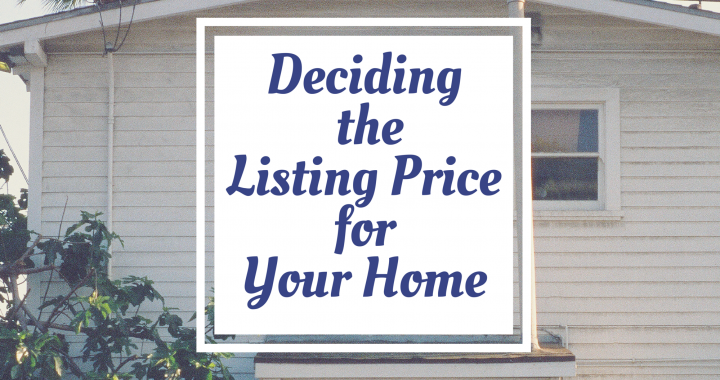When homeowners list their homes for sale, they are generally looking to get the maximum return possible, but also to sell their home within a certain timeframe with great closing terms. Therefore, setting the listing price for your home can be a delicate balance between the price the seller wants and a price that is appropriate for its market. Your real estate agent will work with you to help you find the most appropriate listing price for your home and below, we’re diving into some of the factors that can influence the listing price of your home.
- Comparative Market Analysis (CMA Report).
Your agent will provide you with this report that will show you what similar homes in your neighborhood are selling for. This report provides both you and your real estate agent with a good idea of the average home price in your area. - The “9” or “99” mentality.
Even though a $1999 couch is just $1 less than a $2000 couch, the use of “99” provides some perceived value. So even though there is not a big difference between a home listed at $199,000 versus a home listed at $200,000, it may attract more buyers. - Real estate searches.
Your agent will also want to price your home so that it shows up in more real estate searches. This is one benefits of using the “9” or “99” pricing model- in the example above, homeowners looking to stay within a budget of $200,000 or less may not see your listing if it is priced above $200,000. But, when priced around $199,000, it is more likely to show up in more real estate searches. - Time of year.
We’ve previously written about listing your home in winter and how it can often be perceived as a risky time to list. However, every neighborhood has a different market and buyer trends. Your agent will let you know his or her thoughts on the best time to list your home. - Current interest rates.
Current interest rates can either motivate or dissuade potential buyers. Your agent will inform you of current interest rates and how you might want to price your home based around this. - Market demand.
Is your home in the new “it” neighborhood or have home sales been far and few? The interest and demand for homes in your neighborhood are something to consider when determining your listing price. - Buyer mentality.
Quite simply, put yourself into a potential buyer’s shoes. Have you ever picked a specialty product over a name brand product because of the quality or packaging? A home buyer is similarly influenced by the perceived value of a home, which is why selling factors like curb appeal matter! A buyer’s first impression is important, so consider all the features and flaws of your home to determine an appropriate listing price.
Remember that sale price is an ongoing process. It is easy to adjust the sale price during the selling process when there are market changes or property feedback. Your realtor wants you to get the best price but will be honest and informative when he or she feels that the price may need to be adjusted!

